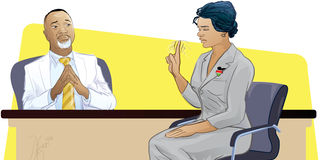Ouch! When sex hurts

Ouch! When sex hurts. Photo | Pool
What you need to know:
Infections can also cause pain for example yeast infections, or sexually transmitted infections like gonorrhea and chlamydia.
Pain during intercourse is a troubling secret for many women. They might have intercourse about as often as other couples do but hide the pain from their partners.
Many never speak to a doctor.
Others get brushed off when they seek help.
Pain during intercourse has a fancy medical name called "dyspareunia." Experts note that every single woman has experienced dyspareunia, at least once in their lifetime. For most women pain occurs the first time they have coitus as the hymen gets broken.
Pain can occur at any age. It may also come and go. The problem is when the pain becomes a constant and keeps you away from intimacy. This according to experts, happens to more than five percent of women worldwide.
In a 2017 study published by the International Journal of Obstetrics and gynaecology, 7.5 percent of nearly 7,000 sexually active women in the United Kingdom said they had had pain during sexual intercourse within three months prior to the study. For about two percent, the pain occurred “very often” or “always” over at least six months, and was a source of distress. Estimates of how many women experience pain during intercourse over their lifetime range from 10 to 28 percent.
But what are the causes of pain during sex for so many women and what should one do?
This reminds me of the case of Noella who visited my clinic five years ago, yearning for a baby, but not ready to have sex, and the pain she experienced was a nightmare.
A hugely built and confident lady, her presence and personality were difficult to ignore. She was authoritative and forceful.
“I want to have a baby without having sex,” she said looking at me directly in the eye, “if you give me quick steps to achieving this I will be out of this place so that you attend to your patients,” the 35-year-old single woman claimed.
In her teenage years, Noella could not use tampons because of the pain. At 25, she was in a serious relationship, but she opted out of the commitment because the sex was too painful.
“Would you allow me to examine you?” I asked, wondering if this could help arrive at a diagnosis.
The tests showed that Noella had vaginismus. Vaginismus is pain in the vagina which is aggravated by attempts at penetration or by the imagination that penetration is about to happen. The basis of vaginismus is spontaneous and painful contractions of muscles around the vagina. People with vaginismus get pain on attempting to insert tampons. Pain can even come on attempting to put a finger in the vagina by oneself or during a medical examination. People with vaginismus dread penetrative sex and tend to evade it.
Vaginismus affects up to one percent of the female population and often represents a physical manifestation of an underlying psychological problem.
Infections can also cause pain for example yeast infections, or sexually transmitted infections like gonorrhea and chlamydia.
Women who are post-menopause or post-partum can also experience pain. While nursing, women have very low estrogens, and if they nurse for a long time, meaning more than six months, they might find their tissues get quite thin.
The drop in estrogen levels brings on vaginal dryness and other symptoms in about half of all postmenopausal women.
“Many women greet this with resignation,” said Dr. Mary Jane Minkin, an OB-GYN, and clinical professor at Yale School of Medicine.
Another issue could be anxiety during intercourse. For a number of women, a new partner, new position, sex toys or lubricants may spark nervousness. This makes them uncomfortable and means they are not well-lubricated.
Painful sex impacts relationships, as about a third of partners are unaware of the pain. So what can women do?
The first suggestion is to open up—to your partner, gynecologist, or doctor. Dyspareunia treatments are based on the cause of the condition.An estrogen-free drug called ospemifene (Osphena) acts like estrogen on vaginal tissues. It’s effective in making the tissues thicker and less fragile. This can reduce the amount of pain women experience with sexual intercourse.
Home remedies like the use of water-soluble lubricants, having sex when relaxed, applying an ice pack to the vulva to calm burning after sex, and a warm bath can alleviate moderate pain.
Doctors may also prescribe desensitization therapy or sex therapy.
In Noella’s case a combination of therapy, pelvic exercises, self-touching, and sex coaching were used in the treatment.
“It has been a full cycle, I have two children and a husband,” she told me when she visited my clinic the other day. She wished more people were in touch with their sexual health needs, and that such services were nearer and affordable for all.





